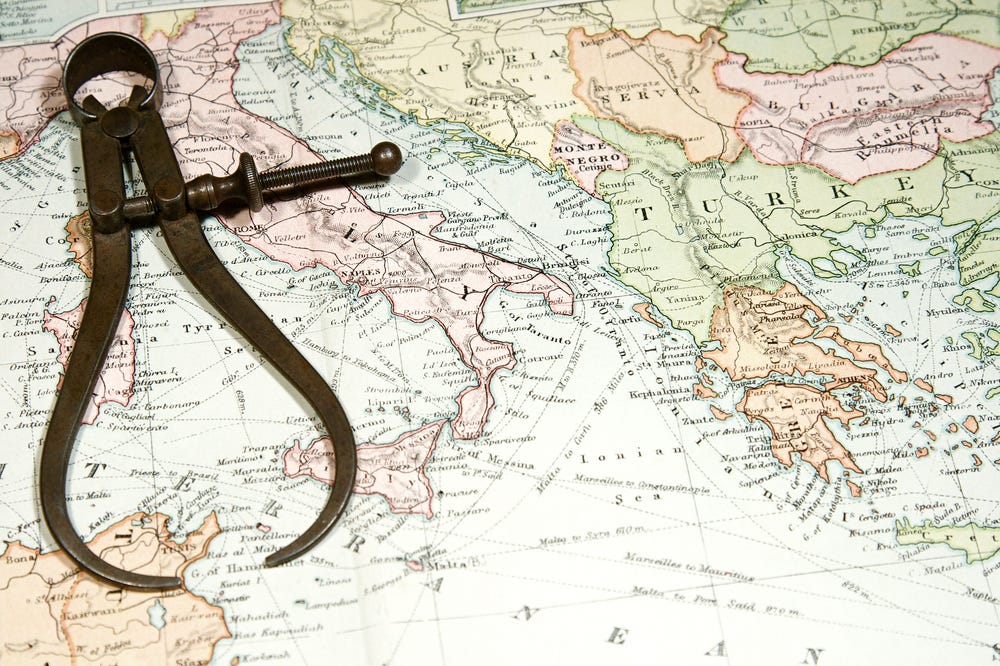God Wanted Abram To Be Abraham - 20
He left with God in order to draw people back to God
Abraham led by example. He didn’t abandon his people. His people’s habitation had been the Ur of the Chaldeans. It was Abram’s father, Terah, who led him out of that land and headed for Canaan after Terah’s son Haran (Abram’s brother) had died.
Genesis 11:27-32 records:
27Now these are the generations of Terah. Terah fathered Abram, Nahor, and Haran; and Haran fathered Lot. 28Haran died in the presence of his father Terah in the land of his kindred, in Ur of the Chaldeans. 29And Abram and Nahor took wives. The name of Abram’s wife was Sarai, and the name of Nahor’s wife, Milcah, the daughter of Haran the father of Milcah and Iscah. 30Now Sarai was barren; she had no child.
31Terah took Abram his son and Lot the son of Haran, his grandson, and Sarai his daughter-in-law, his son Abram’s wife, and they went forth together from Ur of the Chaldeans to go into the land of Canaan, but when they came to Haran, they settled there. 32The days of Terah were 205 years, and Terah died in Haran.
So Abram went with his father, and his other brother (Nahor), along with their wives and Haran’s son (Lot) to the land that was called Kharan.1 It was in Kharan (or Haran) that Terah died. At that point, Abram continued the journey to Canaan. God had told him, even before leaving Ur of the Chaldeans, it was the land that He would someday possess. It was special revelation to Abram. God would make a unique covenant with him. He had grown up in a land of polytheists, but Abram was now a believer in the One True God.
So Abram separated geographically from his heritage. Leaving both Ur of the Chaldeans, and then leaving Kharan. But it was necessary, for he was responsible to God’s call on his life. He had no choice but to be faithful. Furthermore, it was a call that would some day save mankind. Abram did not leave to “chart his own course,” or “find himself,” or because Ur was in a “dead end, hodunk town” that offered him no possibilities. His was not an autonomous, self-righteous, or wanderlust impulse. God told him.
Stephen, the first martyr for Christ, retold Abraham’s history, saying, “Brothers and fathers, hear me. The God of glory appeared to our father Abraham when he was in Mesopotamia, before he lived in Haran, and said to him, ‘Go out from your land and from your kindred and go into the land that I will show you.’ Then he went out from the land of the Chaldeans and lived in Haran. And after his father died, God removed him from there into this land in which you are now living. Yet he gave him no inheritance in it, not even a foot’s length, but promised to give it to him as a possession and to his offspring after him, though he had no child.” (Acts 7:2-5)
So Abram continued his journey with God by leaving Kharan after his father died. He headed to the land of Canaan with his large household; he also brought along his nephew, Lot, and whatever belonged to him. It was surely a blessing for Lot to tuck himself under the protective tent of his uncle. (Perhaps Nahor could have joined them as well?)
Certainly, Abraham thought more of Nahor and his relatives than he did of the Canaanites who inhabited the land wherein God brought him. In Genesis 24:2-4 it says, “And Abraham said to his servant, the oldest of his household, who had charge of all that he had, ‘Put your hand under my thigh, that I may make you swear by the LORD, the God of heaven and God of the earth, that you will not take a wife for my son from the daughters of the Canaanites, among whom I dwell, but will go to my country and to my kindred, and take a wife for my son Isaac.’”
So Eliezer, the servant to whom Abraham spoke, went to Nahor (in the land of the Chaldeans) and came back with a woman for Isaac. Her name was Rebekah.2
“…Rebekah, who was born to Bethuel the son of Milcah, the wife of Nahor, Abraham’s brother...” (Genesis 24:15)
But again, Abraham left the land of the Chaldeans because God’s goal was for Abram to become Abraham. He was to be set apart (separated to God) in order that he might draw all peoples to himself.3 God told him, “Behold, my covenant is with you, and you shall be the father of a multitude of nations. No longer shall your name be called Abram,4 but your name shall be Abraham,5 for I have made you the father of a multitude of nations. I will make you exceedingly fruitful, and I will make you into nations, and kings shall come from you.”6
Abraham was not someone who would leave and forsake those God entrusted to him. He was all about caring for the covenant community. He was all about caring for his family. But most of all, Abraham cared about how it was that God intended to care.
Commentator John Ellicott explains about the land called Haran, “The name must not be confounded with that of Haran, the father of Lot, as really it is in the Heb. Kharan, and was so called in Accadian times, in which language the word means “road,” being…the key of the highway from the east to the west. It was both a very early and a very late outpost of Chaldean power.
Genesis 24 is where you can find the wonderful story.
John 12:32. Jesus was Abraham’s offspring who confirmed God’s ancient promise, “And I, when I am lifted up from the earth, will draw all people to myself.”
Abram means exalted father.
Abraham means father of a multitude.
Genesis 17:4-6


